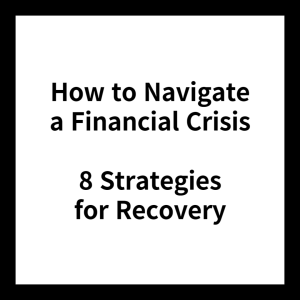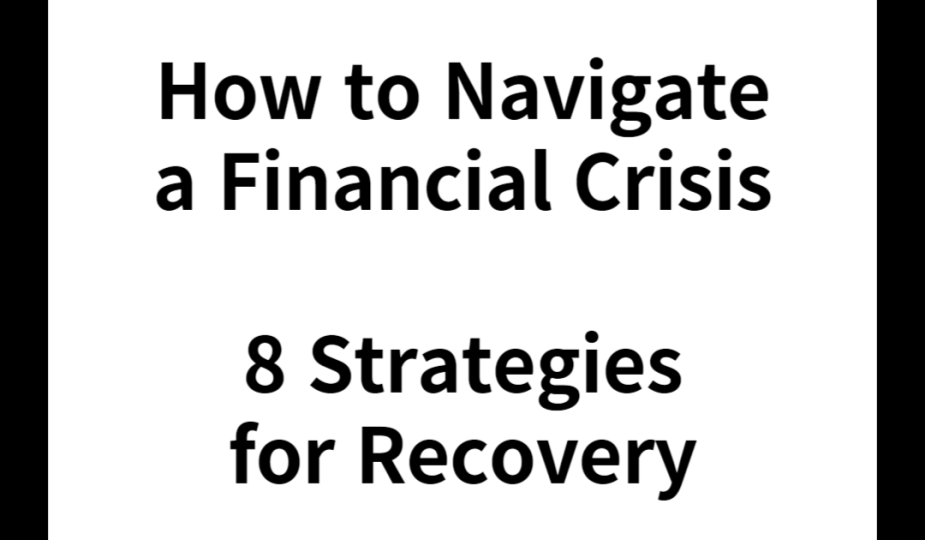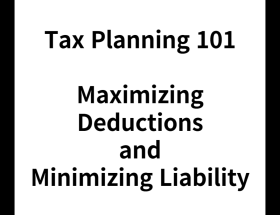# How to Navigate a Financial Crisis: Strategies for Recovery

Financial crises can happen to anyone, at any time.
Whether it’s a job loss, unexpected medical expenses, or a global economic downturn, the impact on our finances can be devastating.
However, with the right strategies and a resilient mindset, it’s possible to weather the storm and come out stronger on the other side.
In this blog post, we will discuss some effective strategies for navigating a financial crisis and achieving financial resilience.

## 1. Accepting the Reality
The first step in navigating a financial crisis is accepting the reality of the situation.
It’s important to acknowledge that you are facing a crisis and that things may not be as they were before.
This acceptance allows you to shift your mindset and focus on finding solutions rather than dwelling on what went wrong.
## 2. Assessing the Situation
Once you’ve accepted the reality of the financial crisis, the next step is to assess the situation.
Take a hard look at your finances, including your income, expenses, savings, and debts.
Create a comprehensive overview of your financial situation, and identify areas where you can make immediate changes or cuts.
This will help you gain a clearer understanding of your current financial standing and enable you to make informed decisions moving forward.
## 3. Creating a Budget
During a financial crisis, creating and sticking to a budget becomes crucial.
A budget allows you to allocate your limited resources effectively and prioritize your expenses.
Start by identifying your essential expenses such as housing, food, and utilities, and allocate a portion of your income towards them.
Then, evaluate discretionary expenses and cut back on non-essential items until your finances stabilize.
Remember, a budget is a living document that may require adjustments as your situation changes.
## 4. Generating Additional Income
To improve your financial resilience during a crisis, consider finding ways to generate additional income.
This could involve taking on a part-time job, freelancing, or starting a side business.
Explore your skills, hobbies, and interests to identify opportunities for extra income.
Not only will this provide a financial boost, but it will also expand your skill set and potentially open doors to new career possibilities in the future.
## 5. Reducing and Managing Debt
Debt can be a significant burden during a financial crisis.
Take proactive steps to reduce and manage your debt.
Start by contacting your creditors and negotiating repayment plans or interest rate reductions.
Consider consolidating your debts or transferring them to lower interest options.
Prioritize your debt payments based on interest rates and the impact they have on your overall financial situation.
It may also be helpful to seek professional assistance from a credit counselor who can provide guidance tailored to your specific circumstances.
## 6. Building an Emergency Fund
An emergency fund is a critical component of financial resilience.
While it may not be feasible to build a substantial emergency fund during a crisis, start small and aim to save at least three to six months’ worth of expenses.
Set up automatic transfers from your paycheck or allocate a certain percentage of your income towards savings.
Having an emergency fund will provide a safety net, protecting you from further financial distress in case of future emergencies.
## 7. Seeking Support
Navigating a financial crisis alone can be overwhelming.
Reach out for support from friends, family, or professional networks.
Share your situation with trusted individuals who may offer guidance, advice, or connections to resources that could help you regain financial stability.
Remember, seeking support is not a sign of weakness but a proactive step towards recovery.
## 8. Embracing a Positive Mindset
Finally, it’s essential to maintain a positive mindset throughout your financial crisis.
It can be easy to fall into a cycle of negativity and despair, but shifting your perspective can make a significant difference.
Embrace the opportunity for growth, see challenges as learning experiences, and celebrate small wins along the way.
Believe in your ability to overcome adversity and focus on the actions you can take to improve your financial situation.

Conclusion
In conclusion, navigating a financial crisis requires resilience, adaptability, and determination.
By accepting the reality, assessing the situation, creating a budget, generating additional income, reducing debt, building an emergency fund, seeking support, and embracing a positive mindset, you can regain control of your finances and move towards a brighter financial future.
Remember, it’s not about the crisis itself but how you respond to it that truly matters.




